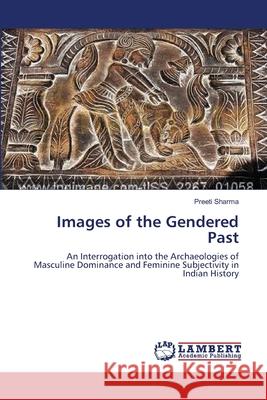Images of the Gendered Past » książka
Images of the Gendered Past
ISBN-13: 9783659128677 / Angielski / Miękka / 2012 / 172 str.
Knowledge is power, but when that knowledge is biased, it becomes counterproductive to any process of emancipation. Women in India, although prima facie appear to be empowered, but the structural inadequacies that they face, makes the very notion of empowerment look as a farce. This has been the case all through the time span of Indian history. Thus, women due to their ontological disadvantages, tend to suffer at all levels of human interactions. This then, points towards a strong need for addressing women's issues in a more extensive manner. This work is one minor attempt in this regard.It has not only attempted at highlighting the diverse streams of marginality/inequality that women face: whether being involved in different professions in ancient times; a prostitute rolling in money in her youth; a Devadasi, a house wife, or princess/queen. Rather it is an attempt at unraveling valleys of resistance that emerged from unknown zones and established queer ways of feminine assertions of agency. The various articles tend to focus on one common theme: status of women in the Indian society which is approached from the perspective of post- positivist understanding of Indian history
Knowledge is power, but when that knowledge is biased, it becomes counterproductive to any process of emancipation. Women in India, although prima facie appear to be empowered, but the structural inadequacies that they face, makes the very notion of empowerment look as a farce. This has been the case all through the time span of Indian history. Thus, women due to their ontological disadvantages, tend to suffer at all levels of human interactions. This then, points towards a strong need for addressing womens issues in a more extensive manner. This work is one minor attempt in this regard.It has not only attempted at highlighting the diverse streams of marginality/inequality that women face: whether being involved in different professions in ancient times; a prostitute rolling in money in her youth; a Devadasi, a house wife, or princess/queen. Rather it is an attempt at unraveling valleys of resistance that emerged from unknown zones and established queer ways of feminine assertions of agency. The various articles tend to focus on one common theme:status of women in the Indian society which is approached from the perspective of post- positivist understanding of Indian history.











